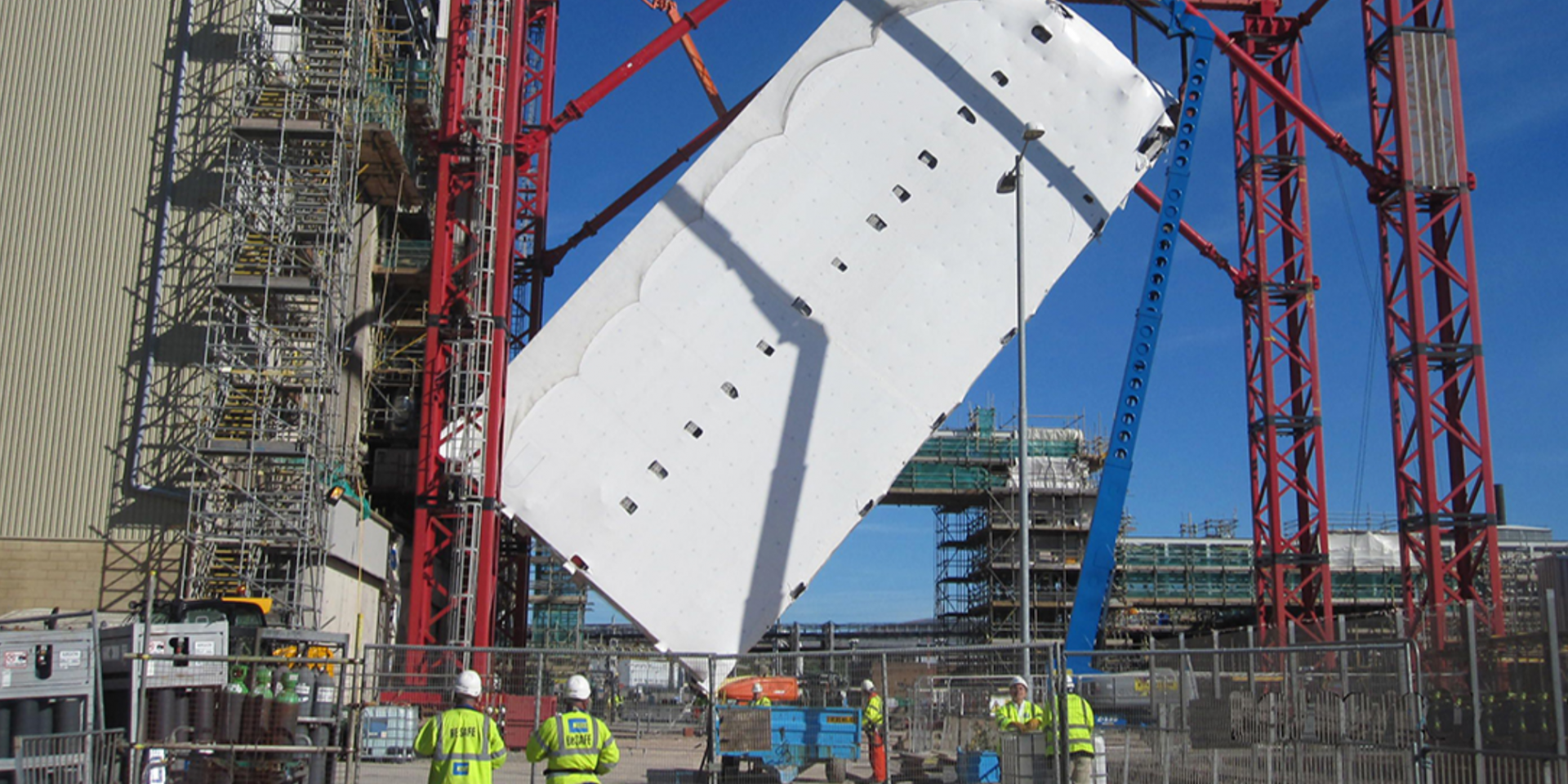At the time of construction, Evaporator D was the largest nuclear decommissioning project in the UK. It was designed to continue reduction of the volume of highly active legacy waste.
With Evaporator C having outlived its shelf life, Evaporator D was designed to reduce the volume of Sellafield’s most radioactive waste product – highly active liquor. The plant is the only evaporator on the site able to process high-level liquid waste created during the clean-out of the Sellafield’s reprocessing plants. It reduces the volume of liquor so it can be turned into gas form and safely stored.
Costain were the main contractor who subsequently appointed Shepley Engineers to deliver the
Supply, Fabrication, and Mechanical installation work in an Alliance named CS3, which included Costain, Sellafield, and Senior Hargreaves for HVAC works.
Following on from Evaporator C Shepley were responsible for all aspects of Mechanical and Electrical installation work for the entire project. Our scope of service drew upon the complimentary support of the Shepley group companies, including PPS Electrical and West Cumberland Engineering. Fabrication of all pipework, supports and module steelwork was carried out at our West Cumberland Engineering Workington facilities.
The project was located next to a live nuclear operational facility with a restricted footprint which was adjacent to the Sellafield site operational rail network. This meant that a modular build strategy was required, and construction logistics was very restricted with limited access and lay down facilities. This was overcome by using an off-site modular build approach, just in time deliveries and enhanced logistics coordination and cooperation between all subcontractors.
The importance of having a collaborative approach from all stakeholders (Sellafield, Costain, and Shepley Engineers) was demonstrated by the use of a single dedicated project office enabling all project team members to work alongside each other. This approach was critical to minimising cost and schedule impacts associated with delivering a project of this magnitude (clashes, client personnel availability, TQ’s etc.). A major contributing factor to reduced cost and schedule impacts was Shepley’s impressive quality and safety records. Shepley recorded no safety instances across the 1.2m mechanical man hours worked, resulting in no lost time accidents and minimal site mechanical re-works, which in turn resulted in minimal additional costs and schedule impacts. The Shepley mechanical team achieved a weld repair rate of less than 2% (<220) across 11,000 welds carried out on this project, thus minimising re-work and the cost & schedule impacts associated with it.





